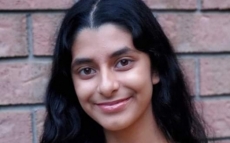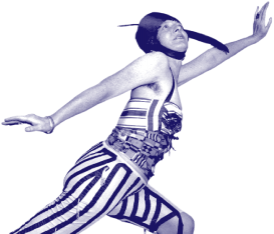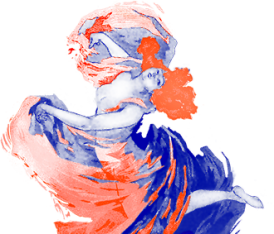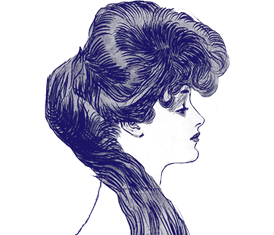HomeNews & Events2011October Modernist Studies Associations...
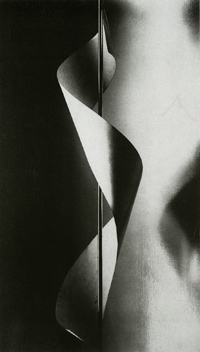
MLC Scholars at The Modernist Studies Association 13,
SUNY, Buffalo
Roundtable 6: Shifting Structures of Innovation:
Visual Culture, The Avant-Garde & Mina Loy
Saturday, October 8, 2011, 10:30 - 12:00, REGENCY A
This roundtable proposes to shift our understanding of modernist "structures of innovation" through a focus on what Peter Middleton calls an "intersubjective network," e.g. the "author" considered as the crux of a number of social and aesthetic performances and institutions. Mina Loy (1882-1966) provides our network: a poet, novelist, painter, fashion designer, lampshade maker, and gallery agent, she lived in London, Munich, Paris, Florence, Mexico, and New York, associating with writers and artists connected to Art Nouveau, cubism, futurism, dada, surrealism, and abstract expressionism. With the conference theme in mind, the roundtable will position Mina Loy as the center of a "structure of innovation" as a means of illuminating that structure from an altered perspective. Each participant will consider Loy in relation to a particular visual artist, movement, or institution in the visual arts, with the aim of using this connection to engage larger questions about gender and sexuality, the relationship between different media, and the history of the avant-garde. Although Loy is our starting point, we do not consider this roundtable a "single-author" conversation; rather, Loy's work and connections to a variety of avant-garde movements will help us to map new constellations of artists, and to generate new ways of thinking about modernism and visual culture.
Frost will explore the "feminine style" of Art Nouveau (adopted in Loy's early art work) as a popular visual practice only briefly in vogue and often overlooked in charting modernist interactions between art and literature, arguing for a "humanist aesthetic" emerging around the shifting nature of gender politics in avant-garde circles, especially in depictions of the human body. Gammel will focus on women and Dada, comparing the Baroness and Loy's use of the found object and detritus, with particular emphasis on the use of art as an extension of the female body, as seen in the Baroness's Limbwish ornament, or Mina Loy's Lampshade. Churchill will analyze the convergence of Mina Loy and Alfred Stieglitz in the 1917 Dada little magazine Blind Man, comparing Loy's excessive and ironic name-play with Stieglitz's demand for anonymity as related negotiations of Dada's cultivation of celebrity, practices that complicate current conceptions of the avant-garde. Turning to currents in later American modernism, Rosenbaum will consider the visual spaces and practices of exhibition that shaped surrealism's reception in New York, exploring Loy's Insel, Peggy Guggenheim's surrealist Gallery, and Maya Deren's film "Witch's Cradle" (filmed in the Guggenheim gallery) as critical, gothic transformations of a male-dominated museum culture which reveal a counter-history of the avant-garde. Goody will consider the "close-up" as deployed by Joseph Cornell and Loy as a case study in examing New York surrealist interaction with mainstream cinema, opening up questions about how the avant-garde negotiates mainstream cinema in the 1930s and 1940s, and how innovative forms of embodiment and expression might be assembled from this specific encounter. Kinnahan will look at photographic strains of surrealist and documentary practice that intersect in a late modernist focus on urban spaces of consumerism and poverty, particularly in Loy's late Bowery poems and the visual technologies explored by Eugene Atget, Berenice Abbott, Man Ray, and Luke Swank, all of whom Loy knew personally or through Julian Levy's gallery.
SUZANNE CHURCHILL is Professor of English at Davidson College. She specializes in modern British and American poetry, modernism, periodical studies,gender and sexuality,and literature and the visual arts. Herbook, The Little Magazine Others and the Renovation of Modern American Poetry, examines correlations between modernist poetic forms and modern constructions of gender and sexuality. She has also co-edited a collection of essays entitled Little Magazines & Modernism:new approache.
SUSAN E. DUNN received her Ph.D. from the University of Wisconsin - Madison where she wrote a dissertation on Mina Loy and the aesthetics of the avant-garde. She is the former Associate Director of the Stanford Humanities Center. She is currently working towards a Masters of Library and Information Science at San José State University.
ELISABETH FROST is the author of The Feminist Avant-Garde in American Poetry and co-editor of Innovative Women Poets: An Anthology of Contemporary Poetry and Interview (both from U. of Iowa P.). She is Associate Professor of English and Women's Studies at Fordham University.
IRENE GAMMEL is Professor of English and holds the Canada Research Chair in Modern Literature and Culture and at Ryerson University, Toronto. She is also the director of the Modern Literature and Culture Research Centre, which is dedicated to the study and preservation of early twentieth-century modern texts and artifacts. Gammel is well-known for her scholarship on gender and modernism. She is the author and editor of ten books, including the internationally-acclaimed Baroness Elsa: Gender, Dada and Everyday Modernity: A Cultural Biography (2002). Most recently, she coedited (with Suzanne Zelazo) Body Sweats: The Uncensored Writings of Elsa von Freytag-Loringhoven for MIT Press. The book will be launched in New York City on November 4.
ALEX GOODY is the author of Modernist Articulations: a cultural study of Djuna Barnes, Mina Loy and Gertrude Stein (2007) and Technology, Literature and Culture (2011), and co-editor of the volume American Modernism: Cultural Transaction (2010). She has published articles and chapters on modernist and contemporary poetry, modernist women writers, New York Dada, and gender and race at the fin de siecle. She is currently working on a study provisionally entitled Machine Amusements: Leisure, Technology and the Women of Modernism and exploring the dramatic writings of Barnes, Loy and Stein.
LINDA A. KINNAHAN is Professor of English at Duquesne University. Her publications include numerous articles on modernist and contemporary poets, along with two books on twentieth-century poetry, Poetics of the Feminine: Literary Tradition and Authority in William Carlos Williams, Mina Loy, Denise Levertov, and Kathleen Fraser (Cambridge UP 1994) and
Lyric Interventions: Feminist Experimental Poetry and Contemporary Social Discourse (Iowa UP 2004). She is currently working on a book entitled Modernist Poetry and the Gendering of Economic, which focuses on modernist women poets, Marianne Moore, Mina Loy, and Lola Ridge, in relationship to the interactive dynamics of economics and visual culture.
SUSAN ROSENBAUM is Associate Professor of English at the University of Georgia. She is the author of Professing Sincerity: Modern Lyric Poetry, Commercial Culture, and the Crisis in Reading (2007) as well as essays that explore American poetry's relation to confession, the visual arts, surrealism, and clichés. Her current book project is entitled Exquisite Corpse: New York School Poetry, Surrealism, and the Museum of Modern Art, 1920-1970.
Panel 104: Technology and Modernity
Saturday, October 8, 2011, 15:30 - 17:00, CONFERENCE CENTER B
Panel organized by Irene Gammel and John Wrighton
Investigating what historian of technology Tomas Misa has called the "co-construction of technology and modernity," this panel investigates the material use of emergent technologies in individual modernist and avant-garde aesthetic practices. Central to these investigations is how such cultural work has been formative in our notions of the fashioning of the modern(ist) self and community. Affirming the obsolescence of the "prosthesis model" of "technological instrumentalism," Sara Danius' The Senses of Modernism (2002) has demonstrated how technology is internalised within our perceptual apparatus. By further complicating and nuancing opposing models of technological determinism and constructivism, the papers in this panel examine the co-construction of technology and modernity in spaces not typically looked at in this context, such as, the domestic, the circus, and quotidian language.
By using Bill Brown's notion of "effecting thingness," Robert Hemmings' paper explores bicycles, wheels and technological innovations in H.D. Wells and Marcel Duchamp. Thus he reads the symbolic function of the bicycle as an object embodying a material force that shapes and constructs the subjects who use them. Nearly one hundred years after its unveiling, viewers may regard the wheel of Duchamp's Bicycle Wheel (1913) as a relatively benign, almost quaint object to deploy in his first "assisted readymade," but this remarkable artwork compresses the cultural meanings of the object at work in H.D. Wells' early novels, Wheels of Chance: A Bicycling Idyll (1896) and The History of Mr. Polly (1910). The bicycle is used in Wells's novel as an object that creates, or enhances, and destroys, or threatens to destroy, categories of subjectivity along class and gender lines. Thus Duchamp's bicycle wheel invokes in plainer terms what is already latent in Wells: the innovation of proto-cyborgian modern subjectivity.
Also in the early twentieth century, in another kind of spectacle, the trope of the circus body offered nascent media forms a somatic vocabulary for staging utopian critiques of modern identity under industrialisation. Using Foucaultian theories of biopower, Vanessa Chang's paper reads the circus body as a site of micropolitical struggle but also as a panacea for the disciplined modern subject, whose mechanized body was inscribed by the inexorable metronome of Taylorism. Through a transmedia comparison of circus bodies and those populating animated film at the beginning of the century, Chang constructs a shared history of a spectacular alternative body, one which defies and transgresses its normal limits.
Finally, the radicalization of technology in the poetic practice of Gertrude Stein is examined by Robert Morden, both in terms of Stein's materials (quotidian language) and technique (mechanical repetition). Stein's aesthetic does not capitulate to or embrace capitalist industry; instead, Morden argues, we should read the significance of Stein's Tender Button (1913) in terms of Theodor Adorno's notion that modernist art employs technological means to contest and resist technological modernity. Repetition (the agent of abstraction) in Stein's work functions to dissociate the word from its syntactic and representational ends in order to foreground the sensuous dimension immanent to the word itself (word as image and sound).
ROBERT HEMMINGS is author of Modern Nostalgia: Siegfried Sassoon, Trauma and the Second World War (Edinburgh University Press, 2008) and of scholarly articles. Assistant Professor in Culture and the Arts and English Studies at Nipissing University Muskoka Campus, he is currently working on objects of mobility in modern British culture.
VANESSA CHANG is a doctoral candidate in the Modern Thought and Literature program at Stanford University. She is the author of scholarly articles, which appeared in Popular Music (Cambridge UP), and The Chicago School of Media Theory. Her research seeks to engage questions of embodiment and technology.
ROBERT MORDEN is a doctoral candidate in the English Department at York University in Toronto. His doctoral thesis explores the materialist logic of late modernist Anglo-American fiction using the aesthetic theories of Theodor Adorno and Walter Benjamin.
IRENE GAMMEL is Professor of English and holds the Canada Research Chair in Modern Literature and Culture and at Ryerson University, Toronto. She is also the director of the Modern Literature and Culture Research Centre, which is dedicated to the study and preservation of early twentieth-century modern texts and artifacts. Gammel is well-known for her scholarship on gender and modernism. She is the author and editor of ten books, including the internationally-acclaimed Baroness Elsa: Gender, Dada and Everyday Modernity: A Cultural Biography (2002). Most recently, she coedited (with Suzanne Zelazo) Body Sweats: The Uncensored Writings of Elsa von Freytag-Loringhoven for MIT Press. The book will be launched in New York City on November 4.
JOHN WRIGHTON is International Research Fellow at the Modern Literature and Culture Research Centre, Ryerson University, Toronto, 2011-13, and is Lecturer in English Literature, Faculty of Arts, University of Brighton, UK. He is author of Ethics and Politics in Modern American Poetry (Routledge, 2009). His research focuses on twentieth century modernist and avant-garde experimentation and ethical theory.






